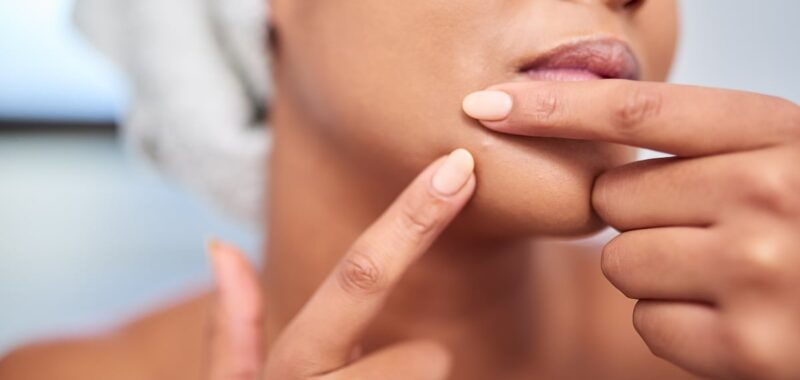
A recent study published in the International Journal of Cosmetic Science has shown that a topical serum containing the live probiotic Micrococcus luteus strain Q24, known as BLIS Q24, can significantly improve multiple skin health parameters.
To learn more about the study and its key takeaways for cosmetics and personal care product manufacturers and suppliers, CosmeticsDesign spoke with the study’s lead author, Rohit Jain, PhD, Science Manager (Product Development) at Blis Technologies Ltd.
Study overview and methodology
The study involved 96 participants with self-reported normal skin who experienced occasional blemishes or breakouts. Participants applied the probiotic serum daily over 28 days and evaluated changes in their skin condition at 10, 20, and 28 intervals.
“By focusing on individuals with mild, everyday skin concerns, the study provides insights relevant to a broad audience,” explained Dr. Jain. The participants included men and women with “normal” skin characteristics like acne or breakouts but excluded those with severe acne or other conditions.
Additionally, all participants maintained a consistent skin care routine throughout the study, which included daily moisturizing. This criteria, said Dr. Jain, ensured the study results could “provide insights relevant to a broad audience…[that] are applicable to those already engaged in regular skin care practices.”
Key findings: Rapid skin health improvements
As reported in the study, participants reported noticeable improvements in various skin conditions within ten days. Compared to baseline measurements, blackheads and oiliness were reduced by 48%, blemishes decreased by 57%, dry areas improved by 23%, redness or rosacea was reduced by 45%, and flaky or rough skin declined by 38%.
Researchers confirmed that by the end of the 28-day study, additional improvements included a 38% reduction in fine lines and wrinkles, a 41% decrease in whiteheads, a 55% reduction in pimples, a 29% decline in age spots, and a 21% decrease in acne.
“Our study demonstrated that a live probiotic like BLIS Q24 can naturally colonize the skin and help restore balance to the microbiome,” said Dr. Jain. “This supports the skin in returning to its most harmonious, healthy state—hydrated, resilient, and less prone to irritation or inflammation.”
Participants also provided subjective feedback, with many noting that the probiotic serum met or exceeded their expectations and performed as well as or better than their regular moisturizers.
A skin care market standout
According to Dr. Jain, what differentiated BLIS Q24 from other currently available probiotic skin care ingredients is that it is a live probiotic rather than a postbiotic.
“Most ‘probiotic skincare’ products on the market actually contain postbiotics—the byproducts of probiotics—meaning they lack the ability to colonize and actively interact with the skin microbiome,” he explained.
“BLIS Q24, on the other hand, is a true, living probiotic that can integrate into the skin’s ecosystem, offering ongoing microbiome support.”
Dr. Rohit Jain
Another key differentiator is the probiotic’s natural antibacterial properties. “BLIS Q24 is the first skin probiotic known to produce antibacterial molecules, giving it a unique ability to suppress harmful bacteria growth—particularly Cutibacterium acnes, a key player in acne formation,” said Dr. Jain.
The study also revealed that the probiotic adapted to different skin needs. “Participants with oily skin experienced rebalancing, while those with dry skin saw improved hydration,” he noted. “Men reported a reduction in ingrown hairs, and some participants even observed improvements in acne scars.”
He clarified that this finding is particularly significant, as it “highlights the beauty of a probiotic that works with the body’s own intelligence—supporting the skin in restoring its natural balance, no matter the skin type or concern.”
BLIS Q24: Industry potential
For cosmetic and personal care product manufacturers, “this study has demonstrated that live probiotics in skin care—an area many in the industry have considered too challenging—are not only possible but also highly effective,” said Dr. Jain.
He encouraged manufacturers to explore probiotic formulations, noting that BLIS Q24 proves that “these hurdles can be overcome.” The findings, he added, open “up exciting opportunities to innovate and create products that work in harmony with the skin’s microbiome in a truly dynamic way.”
The research is also encouraging for the sustainable and eco-conscious skin care market sector. “BLIS Q24 is cultivated using a controlled fermentation process, which is inherently low-waste and resource-efficient compared to traditional synthetic skin care actives,” explained Dr. Jain.
Additionally, its ability to support overall skin health could reduce the need for multiple skin care products, promoting a minimalist and sustainable routine.
Future research
While the study focused on individuals with normal skin and mild concerns, Dr. Jain noted the potential for broader applications. “Conditions like eczema and psoriasis are often associated with an overgrowth of harmful bacteria, such as Staphylococcus aureus, which can trigger inflammation and compromise the skin barrier,” he said.
Because “BLIS Q24 works by crowding out these harmful bacteria and restoring microbial balance,” he added, which supports inflammation reduction and a stronger skin barrier, it could be helpful in addressing these conditions. The research team plans to explore additional studies focusing on individuals with specific skin conditions to validate these findings further.
“Consumers are used to hearing about probiotics in gut health, but applying them topically is still a relatively new idea,” Dr. Jain concluded. “That’s why education is key—our clinical study has demonstrated real, measurable skin benefits, and this is just the beginning of unlocking the potential of live probiotics in skin care.”

